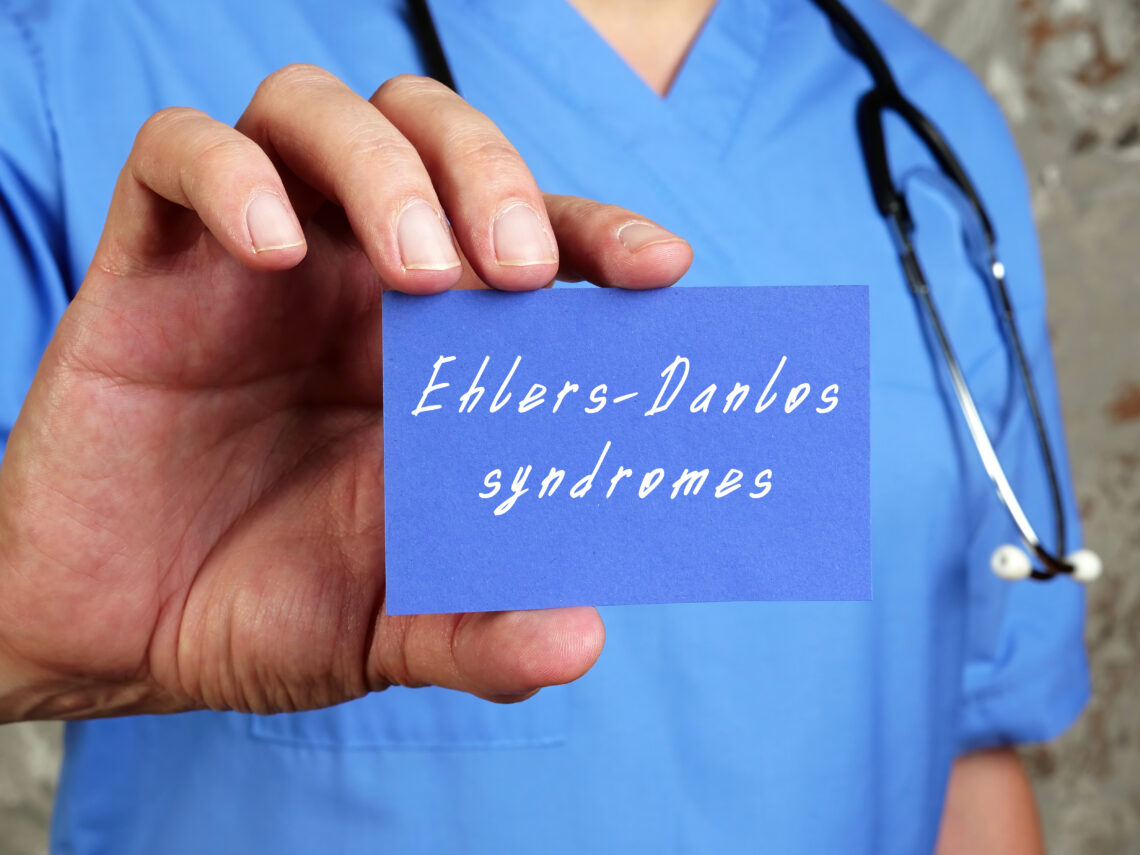
#1 National Ehlers-Danlos Syndrome (EDS) Treatment Center – USA
Comprehensive Care for EDS, hEDS, HSD, and Multisystem Disorders
We Wrote the Book on EDS & Autonomic Dysfunction!
Ehlers-Danlos/Hypermobility Syndromes and Other Connective Tissue Disorders: Assessments, Diagnostics, and Therapies
Book Summary
This book covers Ehlers-Danlos and hypermobility syndromes with an emphasis on treatment of the parasympathetic and sympathetic (P&S) nervous system dysfunctions. Unfortunately, most EDS/HSD patients have been misdiagnosed and misunderstood by providers. EDS/HSD is a multisystem, multifaceted disorder that is poorly understood. The P&S manifestations and treatments are also poorly understood throughout the healthcare community. To this end the authors wish to teach providers and patients alike to reduce the life-long suffering from both the disorder and the marginalization.
There are two aspects of teaching that are required and provided by this book: improved understanding of EDS/HSD and improved understanding of P&S (autonomic) dysfunction and treatment. For example, with the autonomic nervous system, more treatment or therapy is never better. Relief of P&S dysfunction must be low and slow to prevent causing more symptoms from higher doses of medication or polypharmacy. To this end, stress often sets patients back and both providers and patients alike must have proper expectations set for successfully improving patient outcomes (quality of life and productivity).
The book starts with an introduction to and history of the disorder. Chapter II provides a review of the genetics of collagen, the source of the disorders. Chapters III through IX detail the various forms of EDS/HSD and goes into more detail on the more common and more well-known variants of EDS/HSD. Chapter X discusses structural cardiovascular and pulmonary dysfunction associated with EDS/HSD. Chapter XI discusses structural gastrointestinal and urogenital dysfunction associated with EDS/HSD. The book ends with Chapter XII, which details the involvement of the P&S nervous systems and how to treat, which also has general application to other chronic disorders.
This is an ideal guide for rheumatologists and primary care physicians treating patients with Ehlers-Danlos and hypermobility syndromes, and patients and their loved ones in understanding their disease and disorders and the associated treatments and therapies.
This book was published on September 27, 2025. Click here or the image to order
_________________________________________
Restoring Strength, Stability, and Autonomic Balance for EDS Patients Nationwide
Nationally Recognized EDS Treatment Center Serving Patients Across the USA
Franklin Cardiovascular is proud to be recognized as a trusted Ehlers-Danlos Syndrome (EDS) Treatment Center in the USA, providing comprehensive care to patients from across the country.
Our unique approach addresses not only the hallmark joint hypermobility of EDS but also its systemic complications, including autonomic dysfunction, chronic pain, mast cell issues, and postural instability.
Under the guidance of Dr. Nicholas DePace, our center offers detailed evaluation, diagnosis, and individualized management plans for those struggling with hEDS and related syndromes especially when standard care has fallen short.
We specialize in the complex overlap between:
-
EDS / hEDS / HSD
-
POTS & autonomic dysfunction
-
MCAS (Mast Cell Activation Syndrome)
-
Chronic pain & musculoskeletal instability
-
Gastroparesis and GI dysmotility
-
Long COVID-related dysautonomia
Many patients travel nationwide for Dr. DePace’s integrative, systems-based approach especially when standard medical care has failed.
Related Reading:
Do I Have Mast Cell Activation Syndrome (MCAS)? Do I Have Postural Orthostatic Tachycardia Syndrome (POTS)? How Long COVID Adversely Affects the Autonomic Nervous System?
What Is Ehlers-Danlos Syndrome (EDS)?
Ehlers-Danlos Syndrome (EDS) is a group of genetic connective tissue disorders caused by abnormal collagen structure or function. Because collagen is found throughout the body, EDS affects multiple systems—not just the joints.
Common features of EDS include:
-
Flexible, fragile, or easily bruised skin
-
Recurrent injuries, sprains, or dislocations
-
Poor wound healing / scarring
-
Chronic musculoskeletal pain
-
GI issues such as gastroparesis or IBS
-
Autonomic dysfunction (POTS, dizziness, tachycardia)
-
Fatigue, exercise intolerance
-
Temperature sensitivity
-
Migraines, headaches, neuropathic pain
Hypermobile EDS (hEDS) is the most common subtype—and also the most misdiagnosed and misunderstood.
Related Reading:
Ehlers-Danlos Syndrome (EDS) Explained: What It Is, Symptoms, Complications, and When to Seek Help
Ehlers-Danlos Syndrome (EDS): Understanding Symptoms, Subtypes, HSD, and Autonomic Dysfunction
Ehlers-Danlos Syndrome (EDS) and Autonomic Dysfunction
How Does Ehlers-Danlos Syndrome Affect the Entire Body?
EDS impacts more than just joints and skin — it can affect nearly every major body system.
| System Affected | Possible Manifestations |
| Autonomic Nervous System | POTS, temperature dysregulation, fainting |
| Gastrointestinal | IBS, gastroparesis, reflux |
| Neurological | Migraines, dizziness, neuropathic pain |
| Cardiovascular | Aortic dilation, mitral valve prolapse |
| Immune | Mast Cell Activation Syndrome (MCAS) |
| Musculoskeletal | Early arthritis, joint instability, spinal issues |
Effective care requires a provider who understands the multisystemic nature of EDS — not just orthopedic hypermobility.
⚕️ Dr. Nicholas DePace: National Leader in EDS-Related Care
With decades of experience in cardiovascular medicine, autonomic neurology, and mitochondrial health, Dr. DePace brings unique expertise to EDS care.
- Deep experience managing EDS patients with co-occurring POTS and MCAS
- Research focus on non-pharmaceutical interventions, including mitochondrial optimization
- Advocacy for integrating mind-body strategies in managing chronic illness
- Author of Clinical Autonomic and Mitochondrial Disorders, a widely referenced clinical guide
- View his research contributions here:
Nicholas L. DePace – ResearchGate Profile
How Do We Diagnose Ehlers-Danlos Syndrome (EDS) and Hypermobility?
We go beyond surface-level assessments. Our EDS workup includes:
- Family history review and genetic risk assessment
- Cardiovascular imaging to monitor vessel health
- Mast cell trigger evaluation and histamine response testing
- Autonomic function testing for related POTS symptoms
- Postural and neuromuscular assessments
We also pay close attention to invisible symptoms — such as fatigue, bloating, cognitive fog, and heat sensitivity — often overlooked in traditional care.
Related Reading:
Cardiac autonomic testing and treating heart disease. “A clinical perspective”
♀️ How Do We Treat Ehlers-Danlos Syndrome (EDS)?
EDS requires more than braces or medications. Treatment must be holistic, low-dose, and tailored to the individual’s physiology.
Your personalized plan may include:
- Joint and posture support: specialized physical therapy, orthotic recommendations, proprioception exercises
- Autonomic regulation: strategies to manage dizziness, fatigue, tachycardia
- MCAS management: dietary strategies, supplements, antihistamines
- Mitochondrial health optimization: nutrition, targeted cofactors for energy metabolism
- Mental wellness support: addressing anxiety, trauma, and emotional resilience
Patients Across the USA Turn to Franklin Cardiovascular
We receive inquiries from nearly every state in the U.S., with the highest volume coming from:
- Northeast: New York, New Jersey, Pennsylvania
- Midwest: Ohio, Michigan
- South: Texas, Georgia, Virginia, North Carolina
- West: California
Patients from both large cities (like New York City, Philadelphia, Houston, Los Angeles, Atlanta) and smaller communities reach out to us when local EDS expertise is limited.
Let Us Help You Rebuild Strength, Stability & Quality of Life
Living with EDS can feel overwhelming — but you are not alone. At Franklin Cardiovascular, we believe you deserve clarity, compassion, and a clear, individualized path forward.
✅ Accepting new patients nationwide! Fill out our Contact Form today
✅ Complete our secure online Autonomic Dysfunction Questionnaire for expert review
Clinic Location
Franklin Cardiovascular Associates
Lakeside Business Park
1100 Liberty Place
Sicklerville, NJ 08081
Read More:
Ehlers-Danlos Syndrome (EDS) : Hypermobility Diagnosis, HSD vs hEDS & Treatment Approach
Do I have Hypermobile Ehlers-Danlos Syndrome Type III?
What is Joint Hypermobility Spectrum Disorder?



